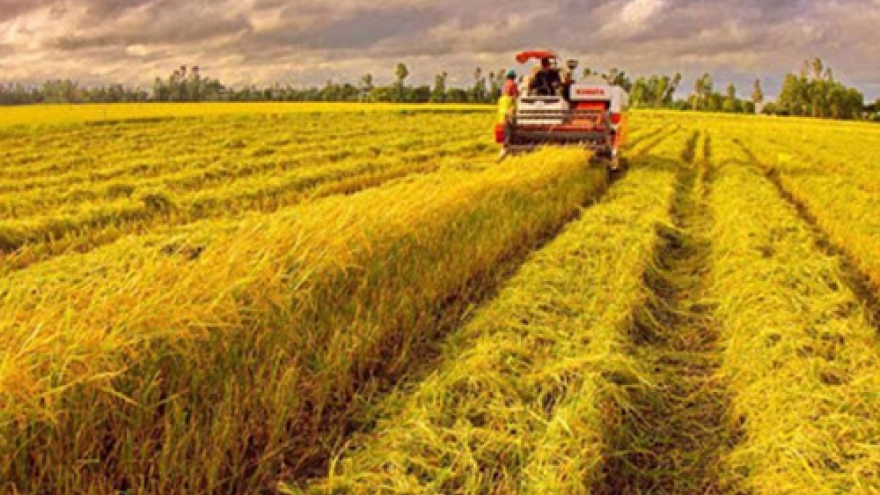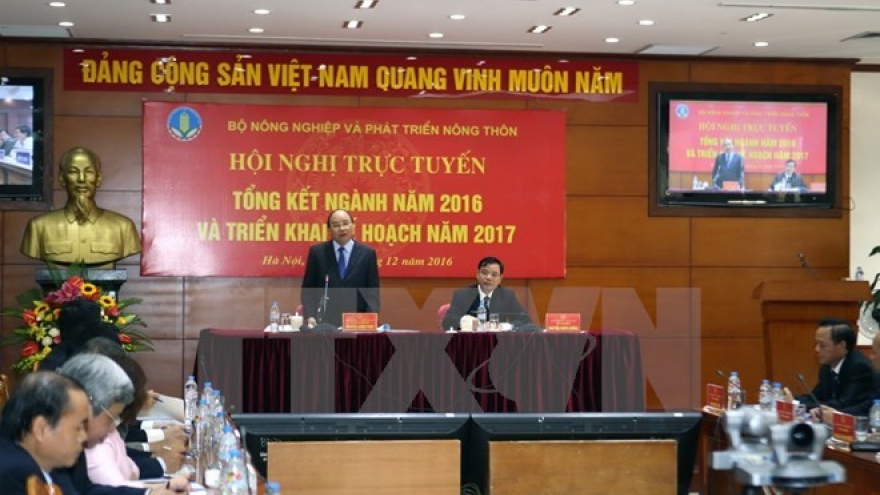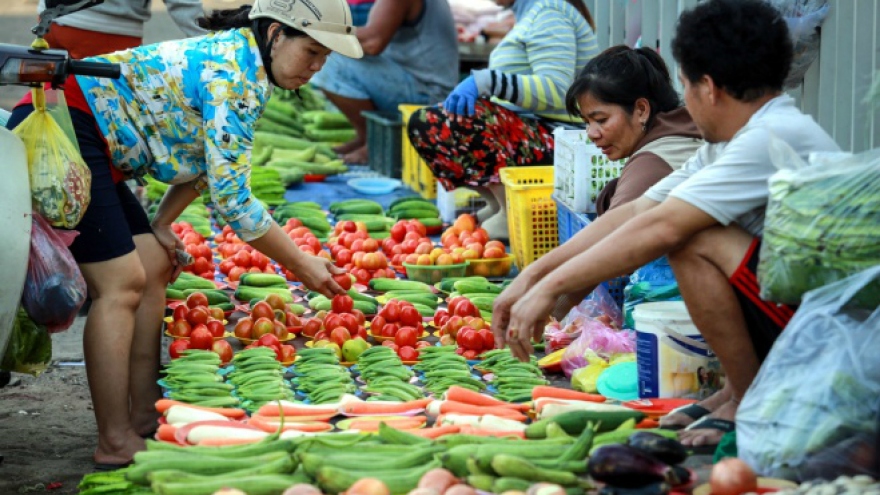Agriculture sector expects further investments with slashed policies
Local and foreign investors are welcoming the government’s landmark move to eliminate agricultural policy-related obstacles in a bid to attract more investment in the agricultural sector.
Hong Sun, secretary general of the Korean Chamber of Business in Vietnam, told VIR that the Korean business community in Vietnam “feels happy” when Prime Minister Nguyen Xuan Phuc announced that the government will give special land, credit, and export-import incentives to farmers and agricultural investors.
“Many Korean firms are operating in Vietnam’s agriculture sector, and many more will come here in 2017 to start vegetable and flower plantations”, Sun said. “Before they come, though, they need the incentives that are offered in many other nations.”
Last week Phuc required the Ministry of Agriculture and Rural Development (MARD), the Ministry of natural Resources and Environment, and leaders of provinces and cities nationwide to remove unnecessary hurdles from all agricultural policies. “Any governmental policy that hampers the sector’s development and detracts from investment has to be abrogated immediately.
 |
Any impediment-containing policy devised by the Politburo and the National Assembly has to be reported to them for consideration,” Phuc said while attending an MARD conference on Vietnam’s agriculture last week.
The government will submit a proposal to the National Assembly about allowing enterprises and investors to own large tracts of land for high-tech agricultural production. In addition, the government is also thinking about establishing a new land fund to take back land that remains unused by state-owned enterprises and organisations.
Phuc also asked the State Bank of Vietnam to create policies giving farmers and agricultural enterprises preferential loans, allowing them to use their assets as collateral.
Earlier, Phuc also announced that the government will earmark a financial package worth VND50-VND60 trillion (US$2.27-US$2.72 billion) for the development of the high-tech agricultural industry. Such a package will be disbursed by many commercial banks.
Commenting on the new policies, the Netherlands’ Ambassador to Vietnam, Nienke Trooster said that “The embassy agrees that transparent access to credit, a sound tax system, and a proper allocation of land are among key factors for the reform of the agricultural sector in Vietnam.”
“Through our strategic partnership on sustainable agriculture, the Netherlands stands ready to join Vietnam in its efforts to transform its agriculture into a sustainable, more climate-resilient, and productive sector that benefits all”, she said.
Currently, land and credit-related difficulties are the two main impediments that discourage investors from investing in the agricultural sector. These barriers are the primary reasons why Vietnam has only 4,000 agricultural enterprises, and why foreign direct investment (FDI) in the sector occupies only 1% of the country’s total FDI.
Vietnam Association of Advanced technology Enterprise in Agriculture, representing over 30 high-tech agricultural enterprises, said that if these new policies come to fruition, Vietnam’s agricultural doldrums would change course significantly, allowing high-tech agricultural enterprises to be unfettered by land, tax, and capital issues.
For instance, Da Lat Flower Biotechnology JSC said it is not easy for the company to access medium-term loans. Currently, only short-term loans are granted, but they are still difficult to obtain. While import tariffs for such projects’ equipment and machines are exempted under the law, the company is still imposed a 25% tax rate for its imports.
Dalat Hasfarm Company also lamented that it is forced to pay duties for its imported modern greenhouses, which are exempt from import taxes as they cannot be produced locally.
Thai Huong, chairwoman of TH Group, which produces fresh milk, vegetables, herbs, and plant forests, also said that although the firm has spent billions of dollars investing in related projects in many locations nationwide, it has received almost no tax, land, loan, or import support from the government.
A recent MARD survey also show that 82% of agricultural firm in Vietnam face difficulties with insurance, 77% in science and technology, 70% in credit, and 63% in land.
Ambassador Trooster also said that inclusive growth, climate-smart solutions and value chain optimisation are additional notions that the Netherlands considers important to bring to the table.
“And let’s not forget the close relation between managing the water supply and agriculture,” she said.



